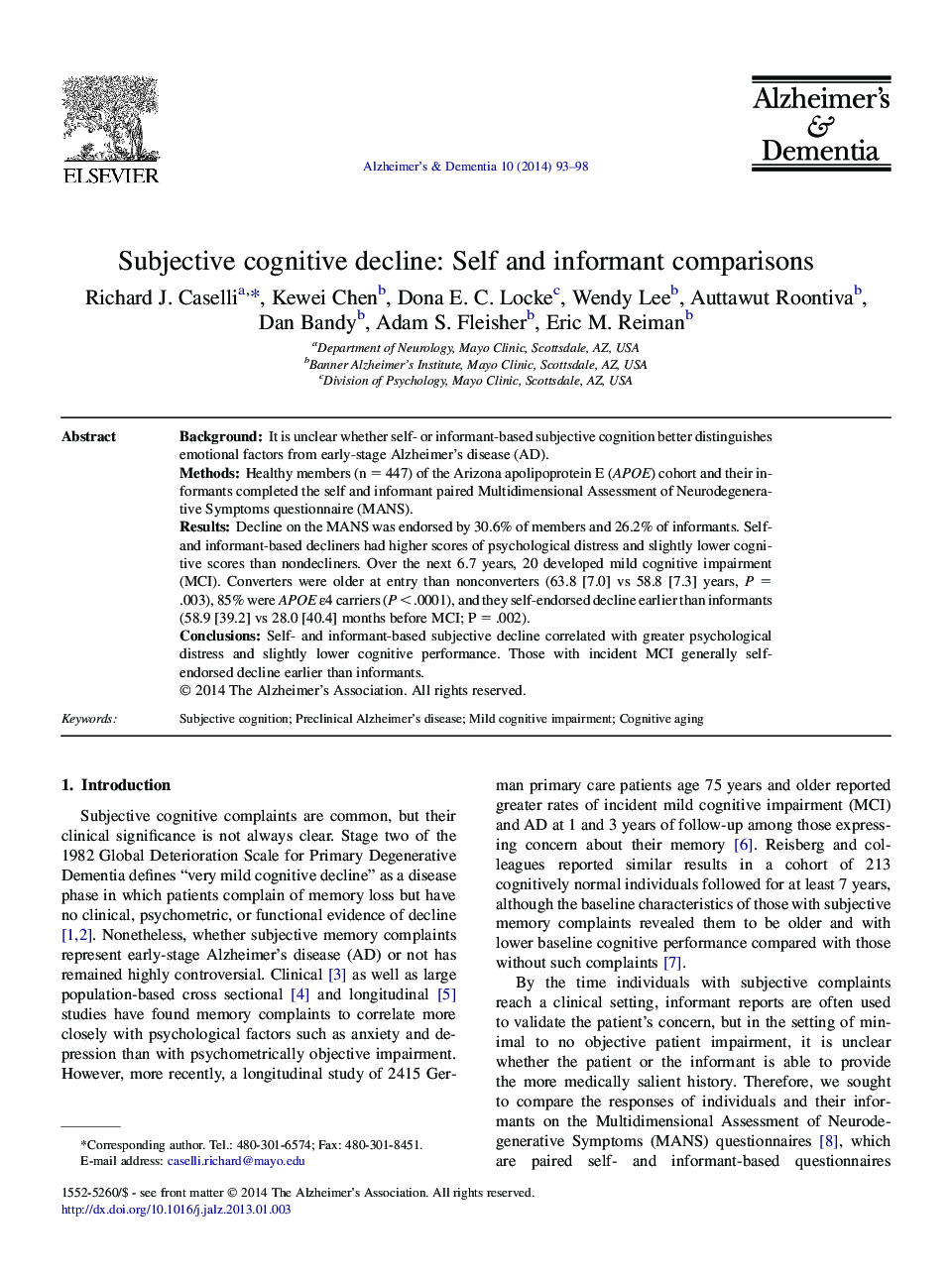| Article ID | Journal | Published Year | Pages | File Type |
|---|---|---|---|---|
| 5624286 | Alzheimer's & Dementia | 2014 | 6 Pages |
BackgroundIt is unclear whether self- or informant-based subjective cognition better distinguishes emotional factors from early-stage Alzheimer's disease (AD).MethodsHealthy members (n = 447) of the Arizona apolipoprotein E (APOE) cohort and their informants completed the self and informant paired Multidimensional Assessment of Neurodegenerative Symptoms questionnaire (MANS).ResultsDecline on the MANS was endorsed by 30.6% of members and 26.2% of informants. Self- and informant-based decliners had higher scores of psychological distress and slightly lower cognitive scores than nondecliners. Over the next 6.7 years, 20 developed mild cognitive impairment (MCI). Converters were older at entry than nonconverters (63.8 [7.0] vs 58.8 [7.3] years, P = .003), 85% were APOE ε4 carriers (P < .0001), and they self-endorsed decline earlier than informants (58.9 [39.2] vs 28.0 [40.4] months before MCI; P = .002).ConclusionsSelf- and informant-based subjective decline correlated with greater psychological distress and slightly lower cognitive performance. Those with incident MCI generally self-endorsed decline earlier than informants.
